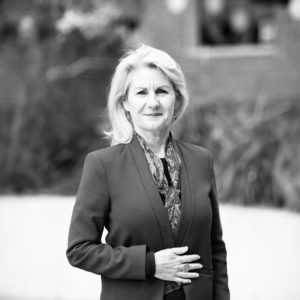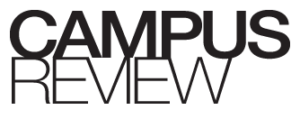A few months ago, I got sent a satirical article about how to sabotage the productivity of your university by using a CIA manual from 1944.
It contained advice such as
- “When possible, refer all matters to committees, for ‘further study and consideration’. Attempt to make the committee as large as possible — never less than five”; and
- “Refer back to matters decided upon at the last meeting and attempt to re-open the question of the advisability of that decision”.
There’s more and it’s worth a read.
Reflecting on my time in higher education over three decades, the article was both funny and depressing. Funny, because it precisely describes daily life working in a university, which is peculiar and amusing and many of us would have it no other way. Depressing, because it precisely describes daily life working in a university, which is highly bureaucratic and inefficient and often a profound waste of talent, goodwill and time.
The current COVID-19 crisis has provided an opportunity to do things differently, in many ways. I’m wondering whether universities might eventually benefit from the situation, including in ways that could be permanent.
The mandated physical distancing has forced university education into remote mode across the developed world in a remarkably short period of time. Faced with a choice between operating at a distance and not operating at all, Australian universities have chosen the former so that learning for what is usually around 1.4 million students a year can continue.
As the dust begins to settle on the move, which in many cases has been undertaken in a matter of days or weeks, attention has begun to turn to the implications of this move.
Integrity and the quality and standards of learning are now the subject of increasing interest and scrutiny. As the ubiquitous, supervised, closed book exam en masse becomes impossible, along with other forms of assessment that require physical supervision of students, less frequently used assessment approaches are being considered.
Academic integrity is having a day or two in the sun as educators in universities consider how to ensure it, when they can’t always see what students are doing, including during electronic classes.
Approaches being considered and used include: more gentle and/or educative interpretations of existing assessment and academic integrity policies; the use of technological proctoring tools, including homemade solutions using student phones; and so-called ‘alternative’ assessment.
Assessment policies are also being changed, or waived, including through the granting of special power to a senior officer of the university in some places, to enable practical solutions to challenging and sudden changes.
And new streamlined governance arrangements are being created and enacted to ensure appropriate oversight of teaching, learning and assessment changes in the provision of university education occur in a very short timeframe. This one might confound any current CIA operatives in universities who are intent on slowing us down.
Considerations of academic matters that used to take one or two long Academic Board discussions and a fair amount of angst, not to mention tension and in some cases ongoing resentments between parties with different views, have given way to short, focused considerations, often in single, brief meetings of key people.
As far as I have observed to date at my own university and elsewhere, we have made sensible and defensible positions and enacted them, with broad acceptance and little or no negative ripple.
Of course, we have been forced to move quickly by the COVID-19 crisis, which will become the defining feature of most of the world’s experience in 2020. A ‘new normal’ is emerging in every aspect of human existence for this period and it is understandable that we should hope things to return to the ‘old normal’, at least in some respects.
I’d argue that academic governance is one area in which we should try to retain the new normal, at least to some extent.
Imagine what might be possible if university staff were freed up, even just a little, from the at times torturous dance of academic consideration that uses up precious talent, goodwill and time.
What if, post this terrible world crisis, we emerged with a commitment to do things differently in universities and in ways that maintained integrity, but did not steal our resources? What if, instead of us doing as a CIA operative would recommend, that is: “Talk as frequently as possible and at great length. Illustrate your ‘points’ by long anecdotes and accounts of personal experiences”, we simply didn’t do that anymore?
What if we all became more conscious of the time of others we use up, perhaps unnecessarily, and committed to stop doing that?
That we have moved over a million university students to profoundly different ways of learning, teaching and assessment to the usual, and created new and efficient ways to consider and govern effectively with academic integrity apparently intact, and all in a matter of a few short weeks, tells us that anything is possible in the sector.
When we emerge from COVID-19, the world will be a different place and human contact will be more deeply appreciated in many ways. Why not try to respect that contact in universities by not wasting each other’s talent, goodwill and time any more?
This article first appeared in Campus Review in April 2020.

